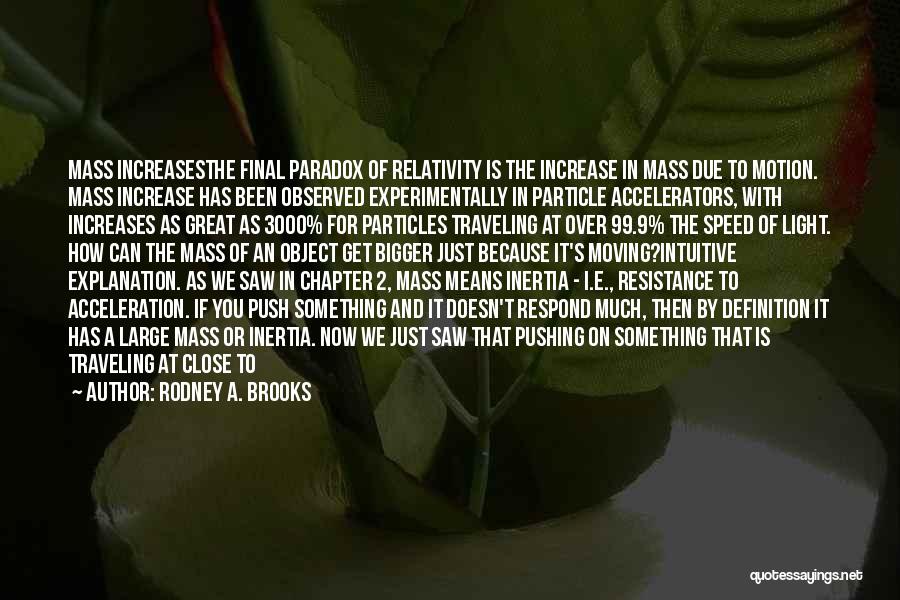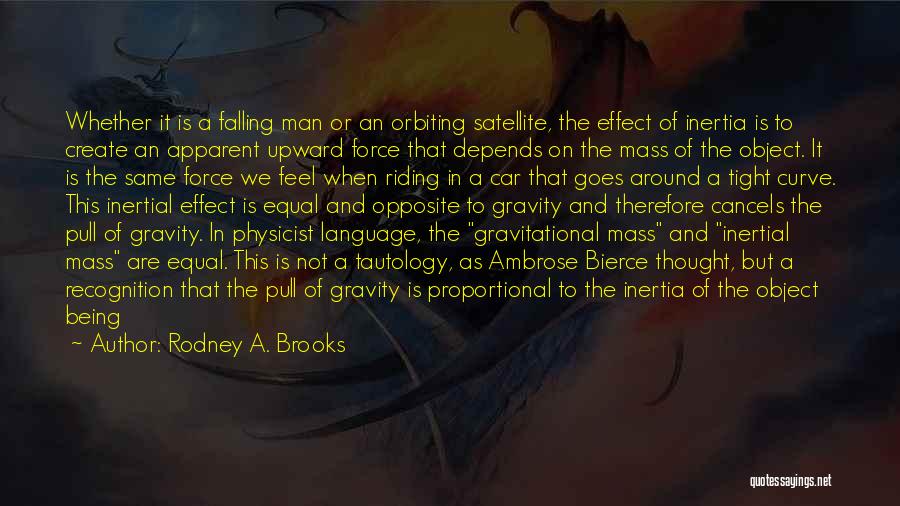Rodney A. Brooks Quotes & Sayings
Enjoy the top 3 famous quotes, sayings and quotations by Rodney A. Brooks.
Famous Quotes By Rodney A. Brooks

The number of matter quanta in a given region or state is limited by the Exclusion Principle. — Rodney A. Brooks

MASS INCREASES
The final paradox of relativity is the increase in mass due to motion. Mass increase has been observed experimentally in particle accelerators, with increases as great as 3000% for particles traveling at over 99.9% the speed of light. How can the mass of an object get bigger just because it's moving?
Intuitive explanation. As we saw in Chapter 2, mass means inertia - i.e., resistance to acceleration. If you push something and it doesn't respond much, then by definition it has a large mass or inertia. Now we just saw that pushing on something that is traveling at close to the speed of light has little effect on its speed because the underlying fields are already moving almost as fast as they can. Thus its resistance to acceleration has become greater and this means its mass has increased. Mass increase is just another way of saying that fields can't propagate faster than c. — Rodney A. Brooks

Whether it is a falling man or an orbiting satellite, the effect of inertia is to create an apparent upward force that depends on the mass of the object. It is the same force we feel when riding in a car that goes around a tight curve. This inertial effect is equal and opposite to gravity and therefore cancels the pull of gravity. In physicist language, the "gravitational mass" and "inertial mass" are equal. This is not a tautology, as Ambrose Bierce thought, but a recognition that the pull of gravity is proportional to the inertia of the object being pulled. Einstein called this the "Principle of Equivalence", and it became the basis for his new theory of gravity that he called the general theory of relativity. — Rodney A. Brooks





